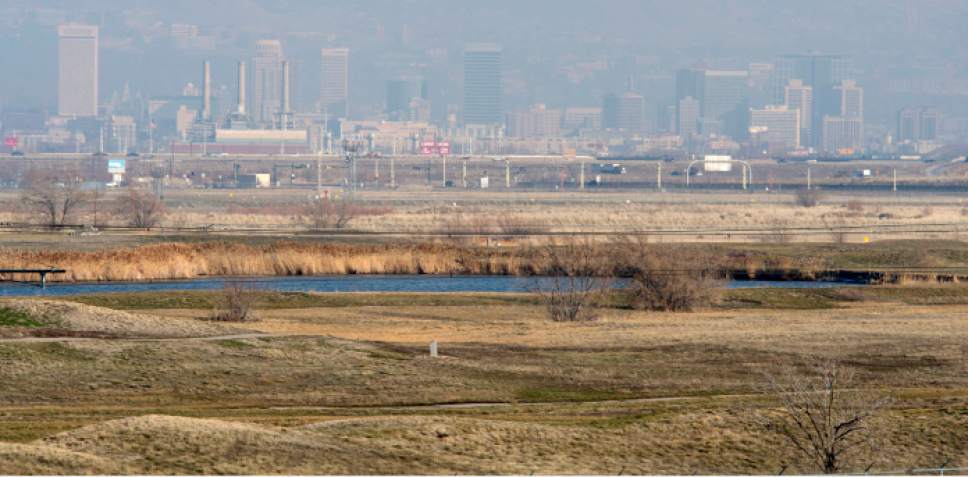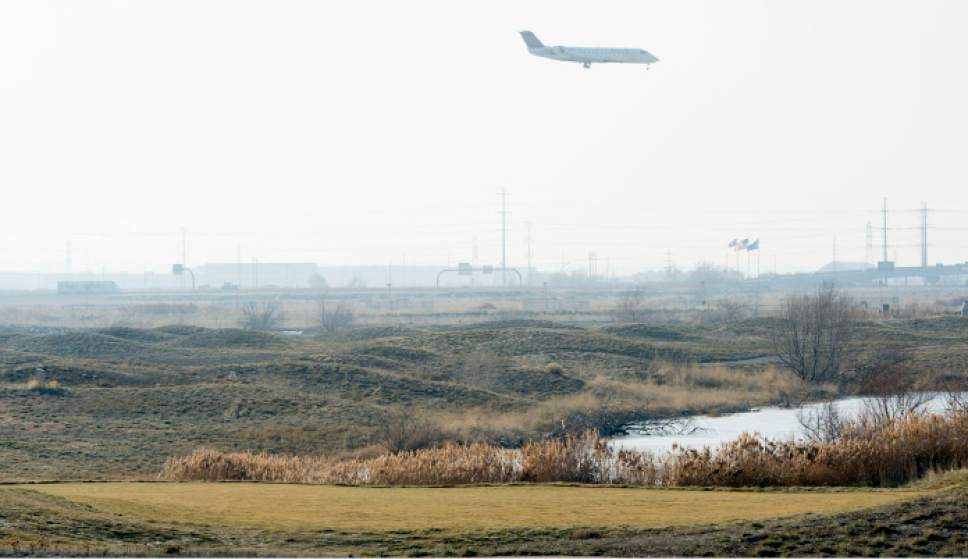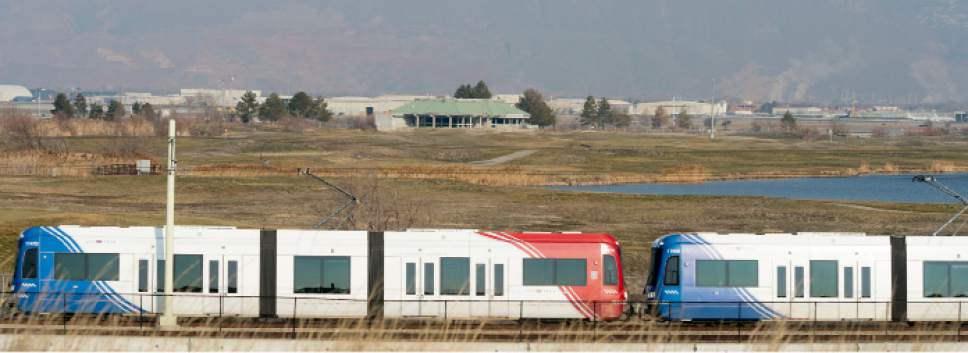This is an archived article that was published on sltrib.com in 2017, and information in the article may be outdated. It is provided only for personal research purposes and may not be reprinted.
It's a good thing he's bald, said Derek Kitchen on Tuesday, because otherwise he'd have yanked out his hair hearing about Salt Lake City's beleaguered golf system.
"This is the most frustrating conversation I've had since I joined the council," he said.
Having requested an update on the status of the city's Golf Enterprise Fund, the council heard that the city's six courses are on track — due in part to some water woes — to end the fiscal year with an operating budget $1 million on the wrong side of par.
What's more, Golf Director Dan Dent presented a litany of suggestions that council staff found to be in violation of council policy guidelines and maybe state law.
"I just can't have another conversation about golf when there's so many more important issues in our city," Kitchen said.
Quipped council Chairman Stan Penfold: "Thanks, Derek, I wish you were more comfortable telling us how you really feel."
Kitchen was the most straightforward but council members — even token golf advocate Charlie Luke — seemed to agree that the administration should return before them with a plan that doesn't include an influx of general funds.
Those options include: closing the lowest-performing courses and repurposing them as public space, reducing pay and benefits for course workers, and partnering with Salt Lake County or private entities.
Dent maintained that while there is little hope of reducing the operating deficit in the next few years, the courses remain a potential source of profit.
Council members took issue with each of the administration's suggestions, "A through H," a couple said.
Reducing administrative charges would conflict with the city's enterprise fund policy, council staff found. Reducing water charges might defy state law. Moving courses to the general fund? A nonstarter, council members said.
What Dent called a potential "investment," they called a "subsidy."
Dent, who was hired in July, said he learned to golf by chipping and putting at city courses and bought a season pass for several years as an adult.
A nationwide decline in golf participation has bottomed out, he said, and the valley's expected population gains will bring increased use.
Penfold said he's heard that tune before. "I've always felt like we're being asked to 'Trust us, something's going to be different."
Luke said he came home from work last summer to find his wife had signed his son up for golf lessons, not at a city course, but at Topgolf, the tiered driving range in Midvale that serves food and beverages as golfers accumulate points for hitting netted targets.
That's what all his son's friends were doing, she told him.
The council's long-running frustration with golf began a decade ago, Erin Mendenhall said. In August 2014, they approved guiding principles that called upon the city's courses to sustain themselves without general funds. In 2015, the council voted to close Wingpointe and Glendale courses — though the latter has survived.
Wingpointe, links-style course on Salt Lake City International Airport land, was closed after the Federal Aviation Administration ordered the airport to lease it to the city at what was judged to be an unsustainable fair-market rate.
The council heard last month that the FAA had yet to respond to a city letter sent in November calling for officials to reconsider the lease requirement. Chief of Staff Patrick Leary said last week that the city expected more information toward the end of this week.
More than $60,000 in council funding had kept Wingpointe's fairways and greens on life support through December, but a leak under a pond that wasn't discovered for three months cost the city an additional $130,000. It is no longer being maintained, Dent said Tuesday.
While such variables — including high temperatures — led to increased costs, Councilwoman Lisa Adams said the courses may be operating in violation of state law given their pattern of deficits.
Informed by Dent that the city's average losses over the past seven years were roughly "break even" at $130,000, Adams asked, "$130,000 is break even?"
Penfold noted that those reports don't include deferred capital investment, either.
Dent said adjustments that made the city's green fees reflect demand resulted in just 1 percent more rounds played and 5 percent less revenue, and operators are fighting the perception that courses are closing.
"The status quo is not acceptable," Dent said, "and significant change is necessary."
On that point, at least, he and the council agreed.
Councilman Andrew Johnston said he didn't wouldn't go as far as Kitchen — who called the issue "ridiculous." Golf is dear to some people, Johnston said.
But he joined others in urging Dent to return to the council in March with a plan that doesn't involve using general funds.
Mendenhall was more firm: "I'm telling you, really clearly, don't come to us asking for general fund money. We're not going to give it to you."
Dent told the council that he has few options to reduce costs, of which labor could make the most significant dent in the deficit.
"It's not a case of we have too many people working in golf, it's just that our labor costs, with benefits added in, are too expensive for our operation," he said.
Luke said he would like the administration to explore different operational models, including partnerships with Salt Lake County and the private sector.
Without a general fund subsidy, Dent said, the city would likely have to close another course.
The most obvious candidate is Rose Park — in the home neighborhood of PGA Tour pro Tony Finau — which has seen declining revenues that officials attribute to worsening course conditions and secondary water project impacts.
City spokesman Matthew Rojas said Glendale's proposed closure and resulting public rallies were evidence that repurposing golf courses as open space can be an unpopular proposition.
Said Councilman James Rogers: "I don't think anybody here wants to shut down the golf courses. We just want to make sure that we are in the black."
Speaking a few turns later, Kitchen replied: "James you mentioned something about we all want to keep golf going. I really don't. I don't care."
Dent said afterward that he was thankful for the feedback.
Twitter: @matthew_piper









